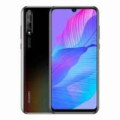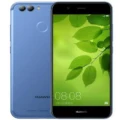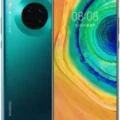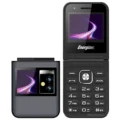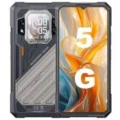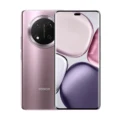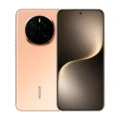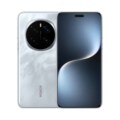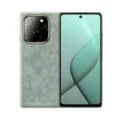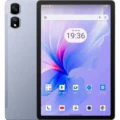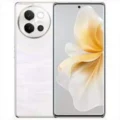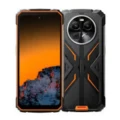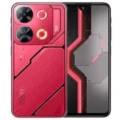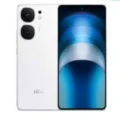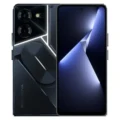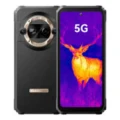Huawei nova 13
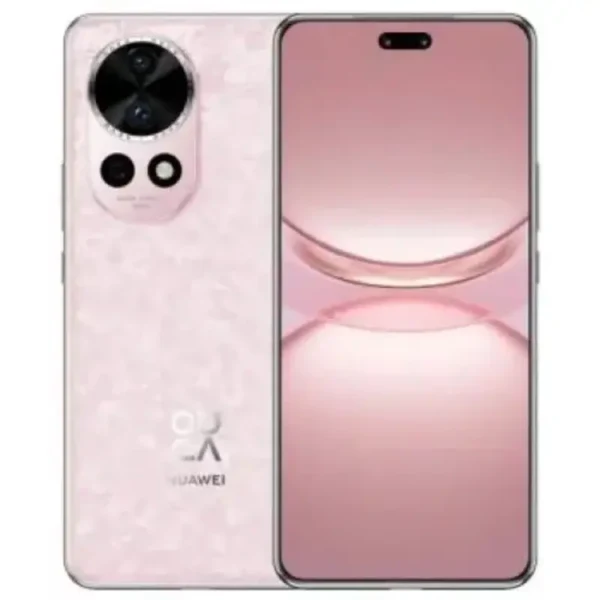

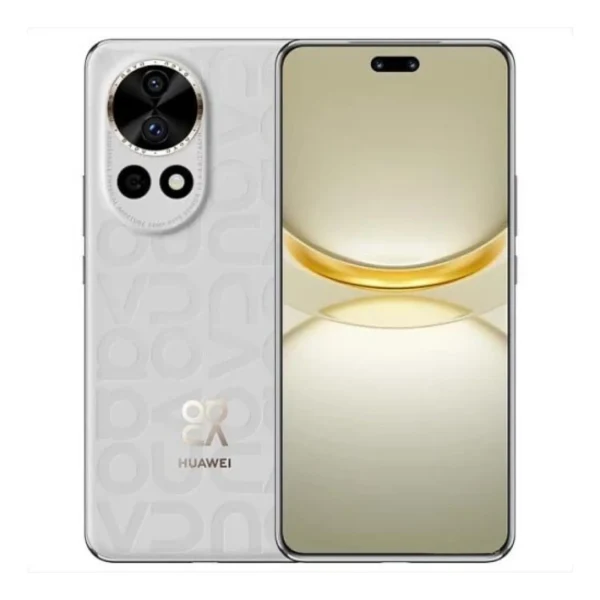
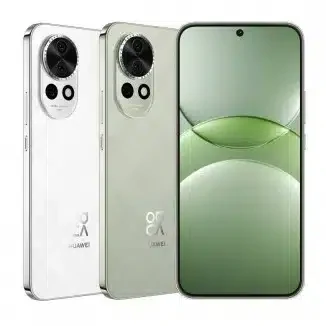

- :
- : 6.7" 1084x2412 pixels
- : 5000mAh 100W
- : 50MP 2160p
The Huawei nova 13 is a stylish and powerful smartphone tailored for users who seek performance and elegance. Boasting a vibrant 6.6-inch AMOLED display, it offers stunning visuals and rich colors, perfect for streaming videos, gaming, or browsing social media. With a robust 64MP main camera, the nova 13 captures sharp and detailed images, ensuring your memories look vivid and lifelike.
Powered by a high-performance processor, this smartphone excels at multitasking, making it ideal for both work and play. The nova 13 supports 5G connectivity, enabling quick downloads and smooth streaming without interruptions. Its durable battery is designed to last, providing all-day usage without the need for frequent recharging, while fast charging technology minimizes downtime, keeping you connected and productive.
The sleek and lightweight design of the Huawei nova 13 enhances its portability, making it easy to carry wherever you go. With a variety of colors and a premium finish, this smartphone complements any style. Combining advanced features, impressive performance, and aesthetic appeal, the Huawei nova 13 is the perfect choice for users looking for a versatile device that excels in every aspect of daily life.
Want to Learn More?
Furthermore Visit the official website of Huaweifor detailed information about the Huawei nova 13: Huawei Official Website
Still Unsure?
If you’re still unsure about your choice, explore other options from Huawei at your nearest store: Huawei Store
Specs
Network
| 2G Network GSM 850 / 900 / 1800 / 1900 - SIM 1 & SIM 2 (dual-SIM) CDMA 800 / 1900 |
GSM 850 / 900 / 1800 / 1900 - SIM 1 & SIM 2 CDMA 800 |
| 3G Network |
HSDPA 800 / 850 / 900 / 1700(AWS) / 1900 / 2100 CDMA2000 1x |
| 4G Network | LTE |
| 5G Network | SA/NSA |
| Speed | HSPA, LTE, 5G |
LAUNCH
| Announced | October, 2026 |
| Status | Available. Released 2024, October 25 |
BODY
| Dimensions | 161.4 x 75.3 x 7 mm (6.35 x 2.96 x 0.28 in) |
| Weight | 195 g (6.88 oz) |
| SIMs SIM (Subscriber Identity Module) is a small card that contains mobile network subscriber's account information. This allows the phone using the card to attach to a mobile network. The SIM card is most commonly associated with GSM and UMTS mobile networks. Moving a SIM card from one phone to another allows a subscriber to switch mobile phones without having to contact their mobile network carrier. SIM cards can also be used by a phone to store limited amounts of data, such as phone numbers and text messages. |
Dual SIM (Nano-SIM, dual stand-by) Splash, water and dust resistant |
Display
| Display Type Display Technology => A number of display technologies and types used in mobile phones => TFT (Thin Film Transistor), IPS (In-Place Switching), OLED (Organic Light Emitting Diode), AMOLED (Active-Matrix Organic Light-Emitting Diode), Super AMOLED (an even advanced version of AMOLED), Resistive Touchscreen (Resistive touchscreens contain two layer of conductive material with a very small gap between them which acts as a resistance), Capacitive Touchsceen (Capacitive touchscreen technology consists of a layer of glass coated with a transparent conductor) | OLED, 1B colors, HDR, 120Hz |
| Size | 6.7 inches, 108.3 cm2 (~89.1% screen-to-body ratio) |
| Resolution | 1084 x 2412 pixels, 20:9 ratio (~395 ppi density) |
| Protection Display Protection => Gorilla Glass is a special alkali-aluminosilicate glass shield with exceptional damage resistance that helps protect mobile displays from scratches, drops, and bumps of everyday use, It is always better to go for a smartphone with Gorilla Glass for that added protection and peace of mind. | Aluminosilicate glass |
PLATFORM
| Operating System OS => Every computer system run on a base software called Operating System (OS). Operating System controls all basic operations of the computer (such as smartphone, PDAs, tablet computers and other handheld devices). The Operating System allows the user to install and run third party applications (apps), apps are used to add new functionality to the device. | HarmonyOS 4.2 |
MEMORY
| Card Slot Memory Card Slot is a special slot for inserting a memory card. Memory cards allow you to expand the phone's built-in memory, A memory card (sometimes called a flash memory card or a storage card) is a small storage medium used to store data such as text, pictures, audio, and video, for use on small, portable or remote computing devices such as mobile phones, mp3 players, digital cameras. | No |
| Internal | 256GB, 512GB, 1TB |
MAIN CAMERA
| Cameras Specs Today’s smartphones come equipped with a very comprehensive set of camera related specifications. Our smartphone, for many of us, has become our primary camera due to it being the one we always have with us. |
50 MP, f/1.9, (wide), PDAF 8 MP, f/2.2, 112˚ (ultrawide), AF |
| Video | 4K, 1080p, gyro-EIS |
| Camera Features | Laser AF, LED flash, panorama, HDR |
SELFIE CAMERA
| Cameras Specs Today’s smartphones come equipped with a very comprehensive set of camera related specifications. Our smartphone, for many of us, has become our primary camera due to it being the one we always have with us. |
60 MP, f/2.4, 17mm, 100˚ (ultrawide) |
| Features | HDR, panorama |
| Video | 4K@30fps, 1080p@30fps, gyro-EIS |
SOUND
| Loudspeaker | Yes |
| 3.5mm jack | No |
COMMS
| WLAN |
Wi-Fi 802.11 a/b/g/n/ac/6, dual-band, Wi-Fi Direct |
| Positioning |
GPS, GALILEO, GLONASS, BDS, QZSS |
| Bluetooth Bluetooth is a wireless communications technology for exchanging data between mobile phones, headsets, computers and other network devices over short distances without wires, Bluetooth technology was primarily designed to support simple wireless networking of personal consumer devices. | 5.2, A2DP, LE, L2HC (320-960 kbps HD audio) |
| Infrared Infrared connectivity is an old wireless technology used to connect two electronic devices. It uses a beam of infrared light to transmit information and so requires direct line of sight and operates only at close range. | |
| USB | USB Type-C 2.0, OTG |
| NFC NFC (Near field communication) is a set of standards for smartphones and similar devices to establish peer-to-peer radio communications with each other by touching them together or bringing them into proximity, usually no more than a few inches. | |
| Radio |
Features
| Sensors Sensors are electronic components that detects and responds to some type of input from the physical environment. The specific input could be light, heat, motion, moisture, pressure and location, The output is generally a signal that is converted to use in computing systems, a location sensor, such as a GPS receiver is able to detect current location of your electronic device. |
Fingerprint (under display, optical), accelerometer, gyro, compass, color spectrum BDS Satellite Calling and Message Virtual proximity sensing |
BATTERY
| Battery Type Battery Type => Cell phones run on various kinds of batteries depending on the manufacturer, phone size or shape and features. There are basically four types of cell phone batteries => Lithium Polymer, Lithium Ion, Nickel Metal Hydride and Nickel Cadmium. | Li-Ion (Lithium Ion) |
| Charging The functionality responsible for recharging batteries in portable devices, such as mobile phones, significantly influences both battery lifespan and the practicality of daily product usage.The charging process, encompassing factors like voltage, current, and completion actions, is contingent upon the battery's size and type.Contemporary battery chargers dynamically adjust charging parameters based on the battery's current charging state. Charging an empty battery poses no safety risk, allowing for a quicker charging process. Consequently, many charging speed benchmarks, including ours, specify the battery level achieved after a 30-minute session on an empty battery.Standard chargers with a power output of 5V/1A, equivalent to 5W, serve as a baseline, with anything surpassing this speed classified as quick or fast charging. | 100W wired, 3-50% in 10 min (advertised) 5W reverse wired |
MISC
| Colors |
Black, White, Purple, Green |
| Model | BLK-AL80 |
| Price | About 350 EUR |
TESTS
Reviews
Disclaimer Note
We strive to maintain accurate and up-to-date content on our website for general information purposes only. Please refrain from using the material for business, legal, or any other decisions.


